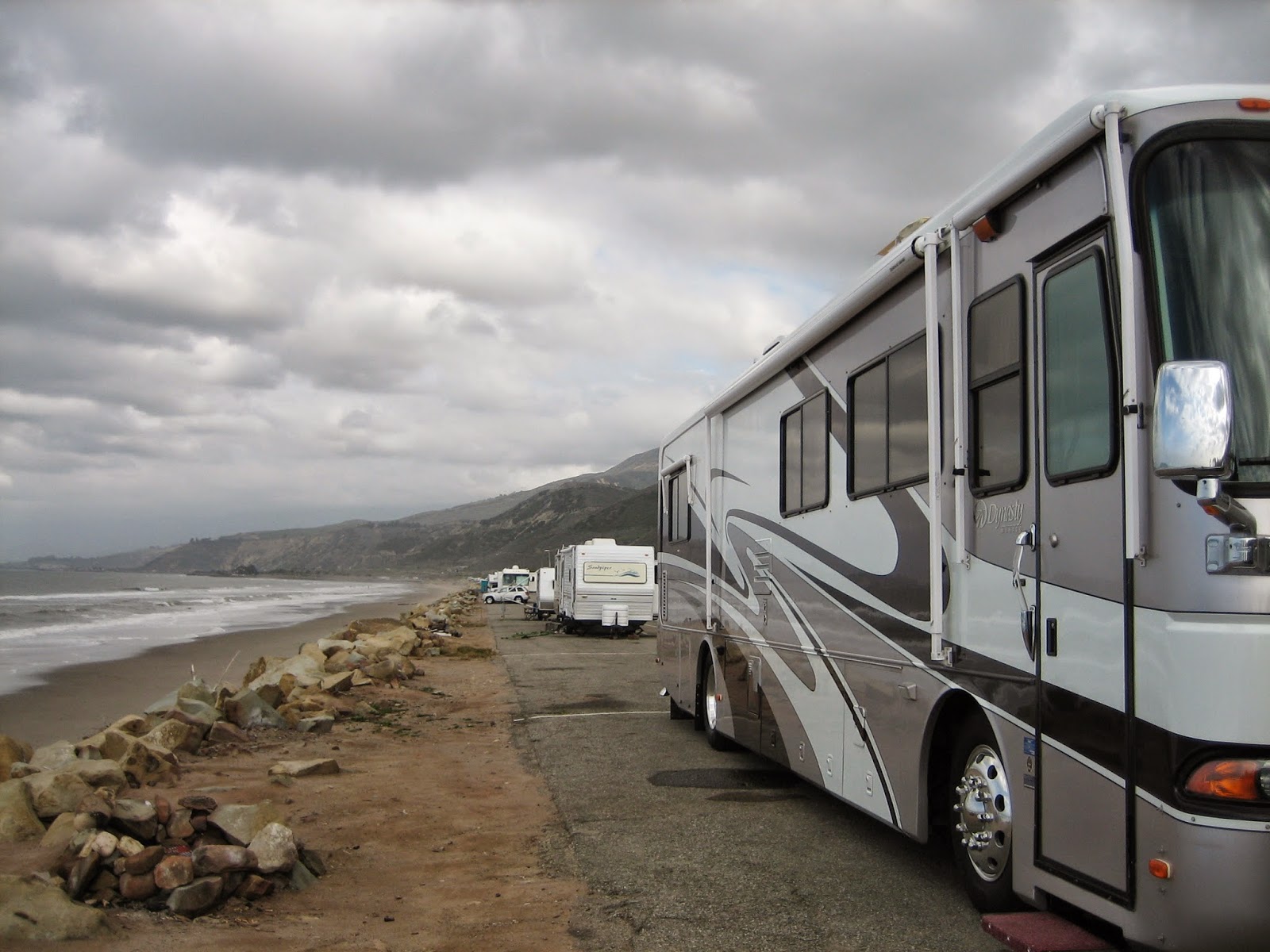Death Valley is the hottest place on earth. The valley has amiable place
names like Dead Man’s Pass, Funeral Mountain, Coffin Canyon, Hell’s Gate,
Devil’s Hole, Suicide Pass, and my favorite—Dripping
Blood Cliffs. This is rugged terrain. Or, as a local newspaper reported in
1907, "it has all the advantages of Hell without the inconveniences."
 It’s even true
that you can fry an egg on the sidewalk, but the rangers are tired of cleaning
up the mess and suggest tourists instead fry their eggs on the hood of their car.
It’s even true
that you can fry an egg on the sidewalk, but the rangers are tired of cleaning
up the mess and suggest tourists instead fry their eggs on the hood of their car.
Good thing for us that it’s January. The daytime temperature only reached the mid-seventies and nighttime required a sweatshirt, a large fire,
and a beverage suitable for sipping. We had a great time and I learned quite a
bit about the region.
Everyone loves the story of Walter Scott, known far and wide
as Death Valley Scotty. Scotty was a flimflam man who despite being discover as
a fraud, successfully ingratiated himself to his rich mark, a man named Albert
Mussey Johnson. Johnson was so enthralled with the con man that he supported
Scotty for the remainder of his long life. Scotty told great stories and
entertained the Johnsons and their innumerable guests. Most people conclude
that if you’re glib enough the world is your oyster. I took away a different
lesson. As a cast member of Buffalo Bill’s Wild West Show, Scotty knew the lure of Western mythos. Johnson, on the other hand, was a longtime
wannabe cowboy. Scotty didn’t just tell stories, he delivered the Old West
right into Johnson’s Death Valley parlor.
The whole episode reminded me of the western frontier's power of
renewal. The chance to start a new life is the real reason tens of thousands
abandoned their home for the Old West. Here’s
a quote from an Article I wrote a few years ago: Is
the Mythology of the Old West Dead?
“The West, outer space, the future, or a make-believe land represents a new beginning in a fresh place away from home-the shrugging off of disappointments and a chance to start all over again. The romance and adventure of frontiers draws people desperate to escape the travails of their current existence. We've seen this in real life with the migrations to the New World and the Old West, but today many people satisfy this longing vicariously with fiction. If you're poor, your family makes you miserable, you've committed an act that offends society, or wanderlust has gripped you, then the adventure and limitless opportunity of a frontier beckons like a siren's call. Emigrating to a frontier means you get a do-over in a land with no rules, no fences, no referees.”
To me, this is the real lesson from Walter Scott and Albert
Johnson. Johnson had been diagnosed to die young and had lived his life indoors
accumulating wealth as a Chicago businessman. He loved the idea of a Wild West
and Scotty delivered it for him. In addition, the dryness of Death Valley gave
him a longer life and relief from his incessant pain. Of
course, Johnson built his home—Scotty’s
Castle—with all the
citified luxuries of the early twentieth century. Scotty's Castle was both a
mirage and oasis safely tucked away in a barren wilderness.
As John Wayne said, “The fascination that the Old West has
will never die."




